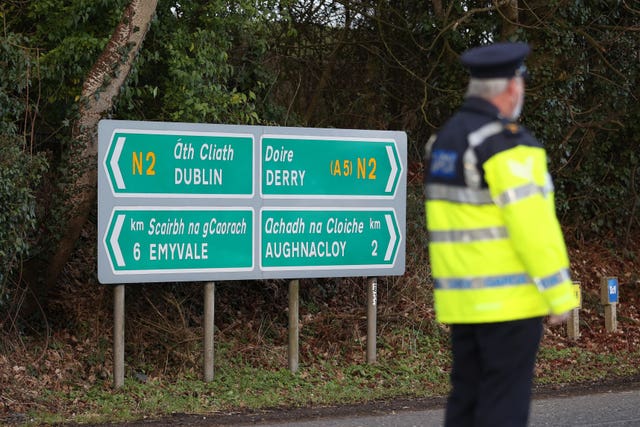
People on both sides of the border are not prepared to foot the bill for a united Ireland, with most in Northern Ireland also fearing it would hit them in the pocket, a poll has revealed.
A clear majority in Northern Ireland and also the Republic would not accept higher taxes to fund reunification, according to the poll by the Belfast Telegraph in conjunction with Kantar.
It found only one in eight in the Republic would be prepared to fully subsidise Northern Ireland – with a third opposed outright to any form of subsidy.
In Northern Ireland, just one in six believe they would not be worse off financially in a united Ireland.
In a sign that health, as well as wealth, is a key issue, almost two-thirds of Northern Ireland people would be uncomfortable transferring to the Republic’s health system.
It comes as Northern Ireland marks its centenary and at a time of significant constitutional uncertainty, with nationalists stepping up calls for a border poll.

On the issue of whether a border poll should be held, support is higher than opposition in Northern Ireland with 44% wanting a border poll, 39% opposed and 17% unsure.
In the Republic, 65% want a vote on removing the border, with 19% against and 17% unsure.
Among those who favour a border poll in Northern Ireland, almost three quarters (72%) want to see it held by 2026 – of this, 28% want it now; with a further 44% calling for it within five years.
In the Republic, 19% of those wanting a referendum want it held now and another 50% say it should come within five years.
Voters were also asked if they wanted a united Ireland.
In Northern Ireland, opinion was split, with 35% in favour. Of this, just under a fifth (19%) were strongly in favour.
Even among those identifying as nationalist/republican in the region, just three in four opt for a united Ireland. Some 43% were against – 35% strongly disagreed.
In the Republic, views are more clear-cut – 67% want a united Ireland, with just one in six (16%) against. Of the 16% against, 8% are strongly against.
People were asked if a united Ireland would happen in their lifetime. Some 39% in Northern Ireland believe it will, with 37% disagreeing. In the Republic, 46% believe they will live to see unification, with 31% disagreeing.
However, support for a united Ireland comes at a cost – literally, with the survey suggesting many are unwilling to pay for it.
Northern Ireland is subsidised to the tune of almost £10 billion annually from Westminster.
Last year the Executive received an extra £1 billion to support the political agreement that restored Stormont, while the Treasury has also footed the bill for Covid-19 support such as the furlough scheme.
Just one in eight (12%) in the Republic said the Irish Government should match the £10 billion London subsidy.
Another 37% indicated they would be prepared to pay some – but not all – of the subsidy.
However, 34% said they would not stump up the cash, with opposition highest among older people.
Those surveyed were also asked would they accept paying more tax to fund unity.
In Northern Ireland, 64% said no with just 17% indicating yes.
In the Republic, 54% are against paying more taxes for unity. Just over a fifth (22%) would accept higher taxes.
A majority in Northern Ireland also fear a united Ireland would hit them in the pocket. Over half (55%) felt they would be worse off with just one in six (16%) believing they would prosper.
In the Republic, 39% believe they would be worse off, with 43% unsure. Less than a fifth (19%) expected to be better off.
The poll also shows a fear in Northern Ireland of losing the NHS. Asked about transferring to the Republic’s health service, almost two-thirds (61%) said they would be uncomfortable.
Just 41% of nationalists/republicans in the region said they would be comfortable transferring, with 87% of unionists/loyalists uncomfortable.
The poll was commissioned in conjunction with the Sunday Life, Irish Independent and Sunday Independent.


Comments: Our rules
We want our comments to be a lively and valuable part of our community - a place where readers can debate and engage with the most important local issues. The ability to comment on our stories is a privilege, not a right, however, and that privilege may be withdrawn if it is abused or misused.
Please report any comments that break our rules.
Read the rules hereLast Updated:
Report this comment Cancel